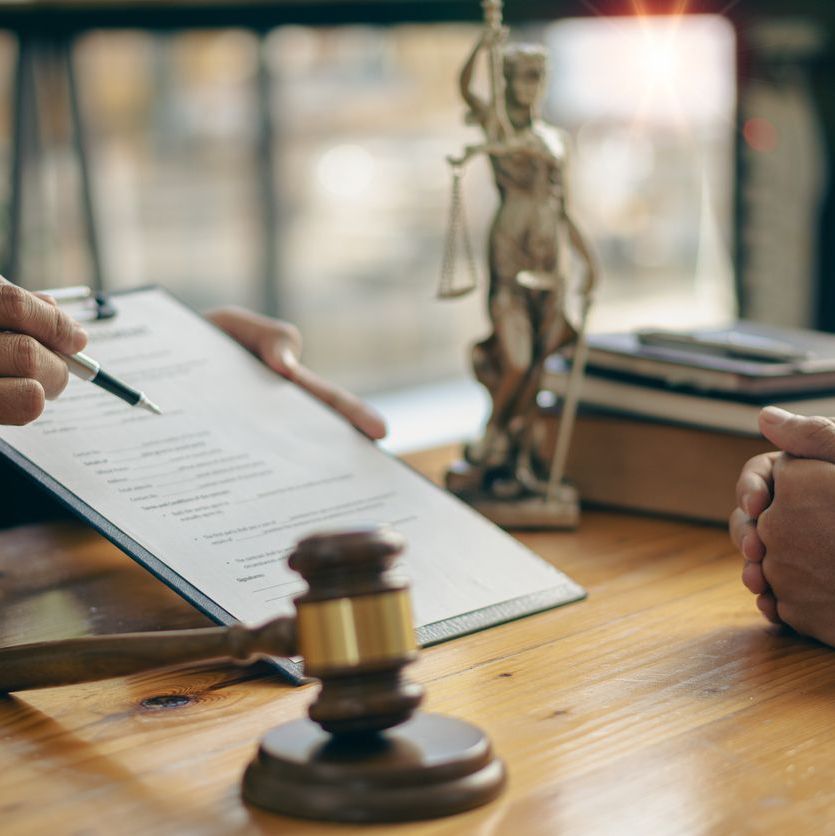Expert Attorney Insights on the Significance of Habeas Corpus
Comprehending the Function of a Post-Conviction Attorney in Seeking Justice After a Criminal Sentence
In the complicated landscape of post-conviction legal procedures, the role of a post-conviction lawyer is pivotal in browsing the course to justice after a criminal conviction. Beyond the boundaries of a test, these lawyers take part in a diverse method focused on revealing brand-new evidence, challenging lawful mistakes, and supporting for their clients' rights. The intricacies of post-conviction job need a blend of lawful acumen, investigatory abilities, and critical assuming to unwind the complexities of a case and seek opportunities that may have been forgotten or underexplored. As the quest of justice prolongs beyond the boundaries of preliminary proceedings, the function of a post-conviction lawyer arises as a beacon of hope for those looking for to fix oppressions and reclaim their civil liberties within the legal system.
Post-Conviction Attorney's Investigative Work
Post-conviction lawyers participate in careful investigatory job to uncover new proof, step-by-step mistakes, or misconduct that could potentially cause reversing a sentence. This investigative stage is vital in the post-conviction process as it aims to identify any type of forgotten information or legal errors that may have influenced the end result of the first trial. Post-conviction attorneys explore instance documents, witness testimonies, and lawful documentation with a fine-tooth comb, looking for any type of inconsistencies or irregularities that might be premises for charm.
Via thorough investigation, post-conviction legal representatives aim to clarify prospective injustices that might have happened during the initial test. They may perform interviews, seek advice from specialists, and evaluation forensic evidence to develop a compelling situation for their customers. By inspecting every element of the lawful process, post-conviction attorneys work tirelessly to uncover any type of aspects that might have affected the decision. Eventually, their investigative work plays a pivotal role in the quest of justice and the potential turnaround of wrongful convictions.
Crafting Appeals and Petitions
In the pursuit of justice after a sentence, competent lawyers diligently craft charms and petitions to existing engaging disagreements for the reconsideration of legal decisions. Crafting appeals and petitions requires a deep understanding of the legal system, attention to detail, and tactical thinking. Post-conviction lawyers evaluate test documents, recognize potential mistakes or offenses of legal rights, and develop legal arguments to challenge the sentence or sentence.
When crafting a charm, lawyers concentrate on highlighting lawful mistakes that might have affected the outcome of the case. They investigate case regulation, laws, and legal criteria to sustain their disagreements. Petitions, on the other hand, might involve offering new evidence that was not available throughout the trial or demonstrating adjustments in the law that call for a review of the conviction.
Furthermore, post-conviction attorneys need to follow rigorous procedural regulations and due dates when submitting appeals and requests. They must offer their disagreements plainly and persuasively to persuade the court to provide alleviation to their customers. With careful crafting of appeals and requests, post-conviction attorneys make every effort to secure justice for people that have been wrongfully founded guilty or unfairly punished.

Going After Post-Conviction Relief
Seeking relief after a sentence calls for a strategic and attentive approach by seasoned attorneys. Post-conviction relief encompasses a variety of legal mechanisms made to test the credibility of a sentence or sentence (habeas corpus maryland). These methods include submitting activities for a brand-new test, pursuing appeals, looking for writs of habeas corpus, and offering newly discovered evidence. Post-conviction legal representatives play a crucial function in navigating these intricate procedures, ensuring that all lawful options are checked out to fix oppressions that might check my blog have occurred throughout the trial or sentencing phase.
One usual form of post-conviction alleviation is submitting an application for post-conviction alleviation, normally based on cases of ineffective assistance of advice, prosecutorial misbehavior, recently uncovered evidence, or constitutional offenses. Experienced post-conviction lawyers have the skills and understanding essential to recognize viable legal insurance claims, conduct examinations, and existing compelling debates to protect relief for their clients.
Making Use Of Forensic Proof
When challenging a conviction or sentence, the calculated usage of forensic proof can be an effective tool in post-conviction legal procedures. Forensic evidence incorporates a variety of scientific techniques utilized to examine criminal activities and establish facts in court. Post-conviction attorneys can take advantage of forensic proof to challenge the credibility of convictions by presenting brand-new clinical searchings for that were not available during the initial trial.

Engaging in Sentence Modifications
Post-conviction attorneys might discover the opportunity of sentence modifications as a legal avenue to deal with out of proportion or unjustified sentences bied far in criminal situations. Sentence alterations entail looking for adjustments to the terms of an accused's sentence after a sentence has actually occurred. These modifications can consist of minimizing the size of a sentence, modifying the type of penalty enforced, or checking out alternative sentencing options.
Post-conviction attorneys can seek sentence alterations with numerous lawful devices, such as filing activities for sentence reduction, appealing for thoughtful release, or negotiating appeal offers for lowered sentences. They should very carefully assess the conditions of the case, analyze the legal grounds for seeking an alteration, and existing engaging debates to the court supporting the demand for a revised sentence.
Participating in sentence modifications needs an extensive understanding of criminal legislation, sentencing standards, and the details treatments involved in looking for post-conviction relief. Post-conviction legal representatives play an important duty in supporting for reasonable and simply end results by challenging sentences that are unduly rough or do not line up with the principles of justice.
Final Thought
To conclude, the duty of a post-conviction attorney is essential in seeking justice after a criminal sentence. With investigative job, crafting charms and petitions, pursuing post-conviction relief, using forensic proof, and involving in sentence alterations, these lawyers play a vital duty in supporting for their clients and ensuring that their civil liberties are upheld within the criminal justice system. Their dedication and knowledge are important in browsing the intricacies of post-conviction process and achieving a reasonable outcome for people facing criminal sentences.